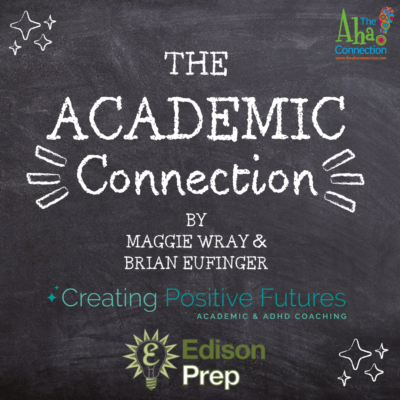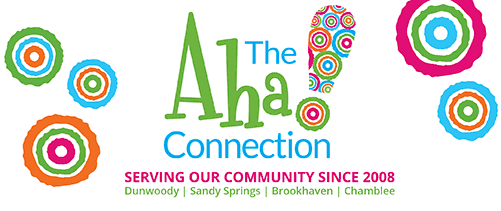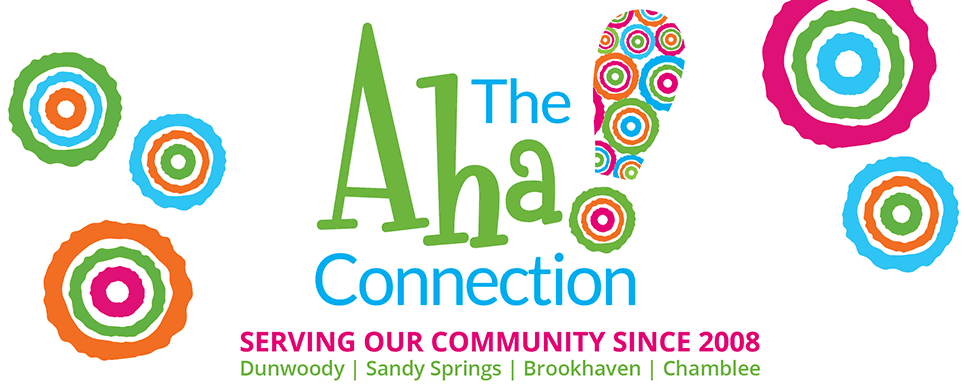 by Brian Eufinger of Edison Prep for The Aha! Connection
by Brian Eufinger of Edison Prep for The Aha! Connection
As a parent, you’ve likely seen a variety of advice regarding the optimal steps to take for college admissions planning from older parents. It runs the gamut: some friends probably recommend starting too early, which can stress students out; others recommend a timeline that’s too late in the process to turn the Academic Titanic, so to speak. Today’s Academic Connection post is all about an optimal timeline that parents can follow to optimize college admissions chances and maximize merit aid and scholarships, all while maintaining harmony in the household.
Optimal Timeline for Getting Grade Grades: Grades begin counting at the beginning of freshman year (and for a few students, 1-2 classes like high school foreign language may count that are taken in 8th grade). A student’s GPA and taking hard classes (rigor) are the two most heavily weighted variables for college admission, so parents checking in on students’ grades from Day 1 of high school is key!
Optimal Timeline for SAT/ACT preparation: Around mid-November each year, Edison Prep begins hearing from some of the earliest sophomore parents as to when they should start the SAT/ACT preparation process for their students. While very few students should begin tutoring during sophomore year (unless they’re a year ahead in math), there are still important, meaningful steps that should be taken during a student’s sophomore year to minimize stress and avoid pitfalls during what is a very time-crunched junior year for most students.
Some Key Guidelines for Designing a Wise Testing Timeline: Well-designed SAT/ACT testing plans should give students a very high probability of being done by the Juy test of junior year. Senior year test dates are entirely valid, but are not ideal because many of those dates take place after Early Decision, Early Action, and scholarship deadlines. Additionally, seniors would have to be taking those senior year tests alongside college applications, college essays, senior work, fall sports, etc. It’s tough.
Students should plan to take a “one-two punch” of back-to-back test dates so that they take (and finish!) the test while they have momentum. It’s not unreasonable for most students with typical starting scores and typical score increase goals to knock the test out by taking it twice, if meaningful timed tests/practice homework occurs leading up to those two test dates. Large gaps between official tests leads to atrophy; those hours spent knocking off the rust could have been spent pushing the score higher instead!
Math is the tail that wags the dog. 1) Students who finish Algebra II sophomore year are ready to start as soon as sophomore year is over, if desired. Indeed, every Memorial Day is the “changing of the guard” where testers go from being 90% juniors to being 90% freshly-minted juniors. 2) Students who are in Algebra II during junior year should wait until second semester to take the test.
Taking mock tests helps students decide which exam to take. 1) If your student is in Algebra II as a sophomore, sometime between March and July of sophomore year (pre-junior summer), they should take a full-length mock SAT and mock ACT, or just take a mock ACT to easily compare against your PSAT from the prior October. Either way works! For about 80% of students, there’s an obvious winner when the Sophomore PSAT and mock ACT scores are compared. 2) If your student is in Algebra II as a junior, wait to take a mock ACT late first semester, around when your October PSAT scores are released, and you can start making a smart spring semester plan around Thanksgiving time! Mock tests are easily completed for free online (ACT PDF or College Board Blue Book App), or Edison Prep hosts them free every weekend (in person and virtual). Students can sign up at www.disonprep.com/mocks!
Planning early often means being right on time. With only 7 test dates per year and the average student taking it 2.5 times, once Type-A planners look at the family calendar, sports calendar, school calendar, etc., there are often just one or two wise paths that don’t have conflicts! Once you know which test is stronger, students can analyze the test dates for his/her stronger test against extracurricular time commitments and other conflicts. Some common roadblocks are illustrated with this image!
Getting More Support If you’d like more advice as to your student’s optimal testing timeline (and other college related questions), Edison Prep does free parent consultations for Aha! Connection subscribers! We’ve included some links below.
Additional Resources:
Questions? Email us at edison@edisonprep.com or call us at 404-333-8573!

















